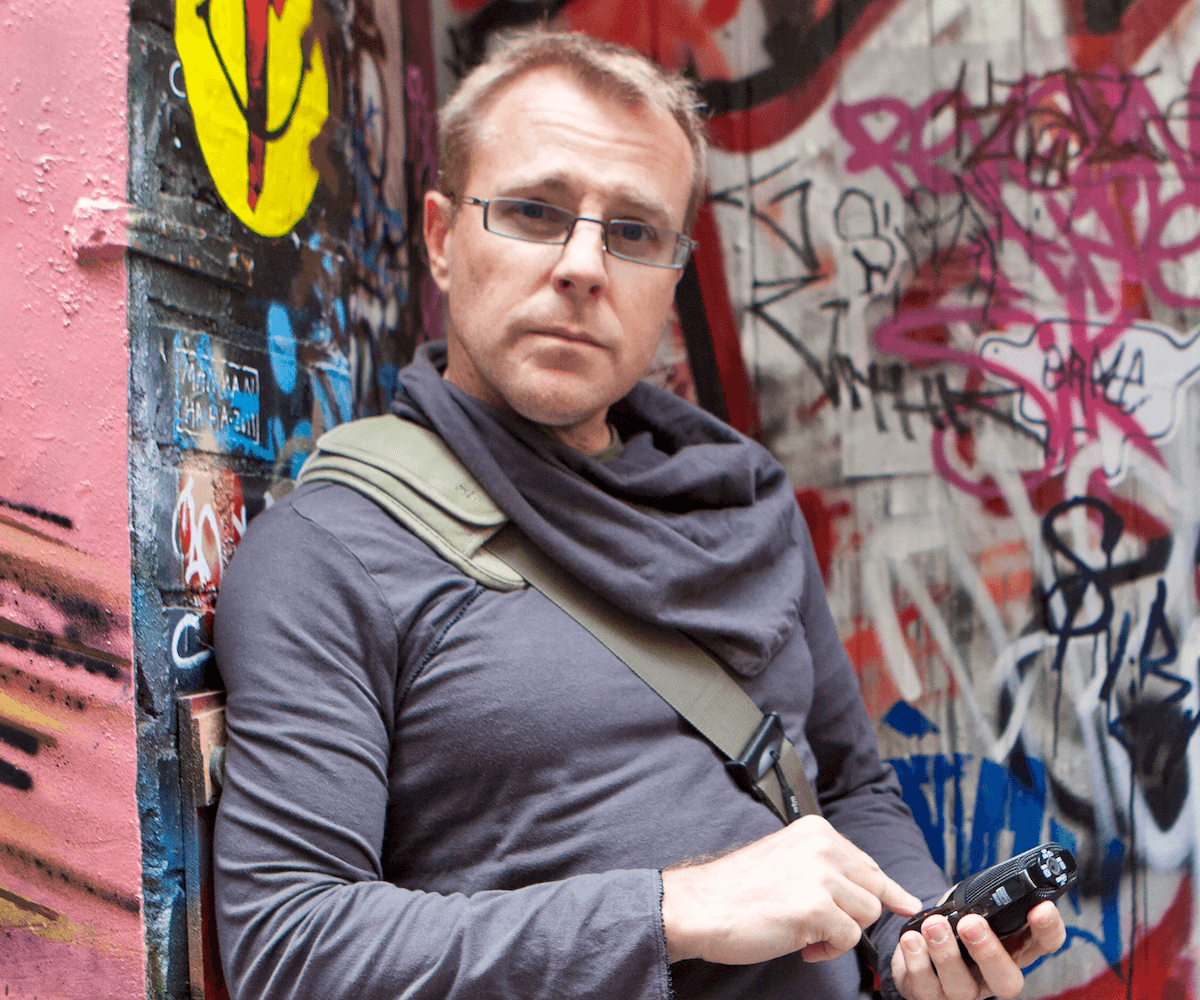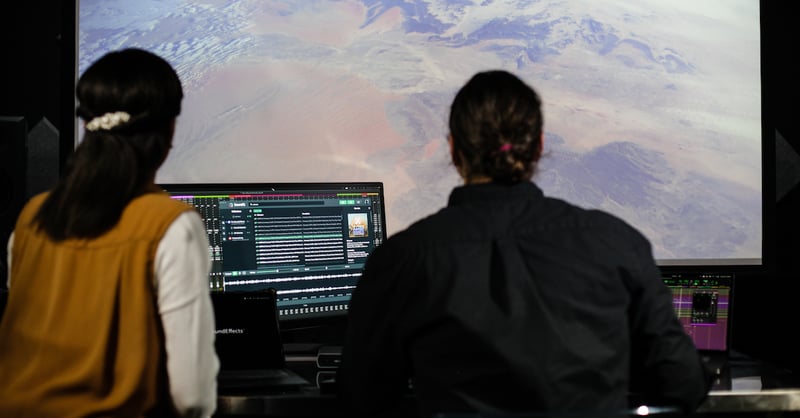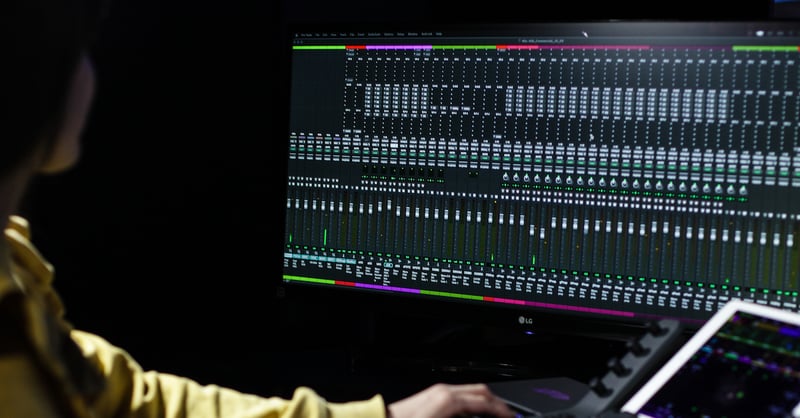When I started in audio production many years ago, I had a few (somewhat misguided) ideas about how I should work. All my prior training and experience was as an instrumental musician; I had never had a mentor or done any formal training in sound design and production. I was essentially self-taught.
In my mind I would not be a “real” sound designer unless I crafted every single sound I needed - and even more importantly, I had to record all my own raw material. I think my mindset was, “Well this is how teams like Skywalker Sound do things so it's obviously how it must be done.” This ignores several obvious points, such as that teams like Skywalker do in fact utilize sound libraries, and that if you are recording from scratch, it is far easier when you have a team working to achieve the goal.
In defense of my naive and untrained brain, the company I worked for refused to spend anything on audio, so I had to make any equipment purchases out of my own meager salary. Additionally, more than 20 years ago, the range and quality of available sound libraries was fairly limited. But this was compounded by my misunderstanding of what sound design actually involved. Since then, my time in the industry has helped me refine some of my definitions and taught me to appreciate the value of the wealth of tools and resources we have available.

Stephan Schütze, Sound Designer & Location Recordist
In one regard at least, my naive attitude did serve me well. Because I had started recording raw material early in my career and I had also made a habit of recording anything and everything I could think of, it became the perfect foundation for me to share my recordings for others to use. It was from this love of recording that my company Sound Librarian formed.
But even as I started to produce commercial sound libraries for others to use, I still had an unreasonable expectation of my own work. Surely as someone who recorded lots of content and produced sound libraries, I should not be using other people’s material! I convinced myself that using other commercial libraries was a sign that I was failing. If it was a sound that could be recorded, then why did I not record it myself? Again, I entirely missed the point that there was no way I could possibly record or create every sound that I might ever need. I could not gain access to so much of the material that was available through other libraries - and most importantly, I was missing out on taking advantage of some of the incredible talent of my sound recording colleagues. This was not just a naive point of view, it was inadvertently pretty arrogant. In my desire to be honest and hardworking, I was disregarding a whole world of incredibly talented sound recordists, whose content could help me create far better material than I could using only my own recordings.
"There was no way I could possibly record or create every sound that I might ever need... I was missing out on taking advantage of some of the incredible talent of my sound recording colleagues."

There is a funny story about a person who wanted to make a sample library, so they taught themselves to code. They then realized they should learn to play the drums to perform the sounds themselves, then decided they needed to make their own drums, then realized they should raise goats to harvest the leather to make the drum skins… in the end, they never made the sample library because they were spending too much time raising goats. I had accidentally backed myself into this kind of corner.
The key benefit for me in creating and distributing commercial sound libraries has been the exposure it has given me to OTHER sound libraries and the incredible work of my colleagues. While I have recorded and created tens of thousands of sounds over the course of my career, access to the broader world of sound libraries has provided me with literally millions of sound effects that can cover almost every conceivable scenario and story.
Recently, through an odd series of events, I was tasked with adding sounds to some marketing videos for a major game franchise. Like a lot of marketing efforts, the turn around times on these videos was incredibly short. My task was simply to add the most suitable sounds to the visuals and create an effective mix. This is sound design in one of its many forms, but what allowed me to achieve a good result in a very short period was access to a massive pool of potentially useful sounds. In 2-3 hours I was able to find, implement, and mix everything that was needed for this video. The client was happy with what they heard and very pleased with the fast turnaround. Since adding the sounds to that first video a few months ago, I have done six more for that franchise.
In many ways, this task has been about making the right choices and selecting the best sounds from the hundreds of thousands I have available. But it is also a collaboration. For a project with a turnaround like this, I rely on the talent of my colleagues who have created the sounds in the libraries I use. I know the content within my collection very well and I can usually trust my collection to have what I need, and in the event that my current collection does not have what I need, then there will be a way to create it. The “sound design” aspect of this work is in making the right choices of sounds, and combining them to get the best result. I suspect a younger me might have been somewhat horrified by all this, but the results speak for themselves. Any time we combine any number of sounds together, we are creating new content, and if that content suits the needs of your clients, then it’s a victory.
"While I have recorded and created tens of thousands of sounds over the course of my career, access to the broader world of sound libraries has provided me with literally millions of sound effects that can cover almost every conceivable scenario and story."

One other aspect of this process was demonstrated very clearly to me in the last couple of weeks and was the motivation for writing this post. I am currently working on a project which requires some fairly cliché 70s anime-style sound design. A mixture of hard sound effects and well-crafted synthesis. The problem is, I have only a very basic understanding of synthesis, and so even looking into what might be possible would take me a ton of time. A colleague linked me to a sound library that was entirely anime SFX and a video showing how the two designers created many of the sounds. These two obviously had a ton of experience in synthesis and also an impressive amount of equipment, but more importantly they had a passion and drive to recreate the classic sounds many of us grew up with from old school anime shows. I could never compete with that, and it would take me months of time to even get close.
I consider myself to be a solid mid-tier sound designer. I will certainly acknowledge that my lack of formal training may have limited how fast and how far my skills have developed. But I think more than that, some of my misguided attitudes on how to create content have held me back in the past. When I realized just how incredibly valuable my collection of sound libraries is, I had to acknowledge the incredible work that is being achieved every day by sound recordists and designers all around the world as they put their passion into creating tools that allow all of us to raise the bar on the work we produce.
I will never stop recording my own raw materials and using them to craft sounds. The task of creating sounds from various elements is still one of the things I enjoy most about sound design. But the collaboration that is possible by combining the materials I have created with the content available from incredible sound designers is always going to allow me to achieve better results.
 Stephan Schutze has been a sound designer and location recordist for over 20 years, he gets the greatest pleasure from the discovery and recording of new and unexpected sound content. His sounds can be heard in everything from video games to Hollywood film trailers.
Stephan Schutze has been a sound designer and location recordist for over 20 years, he gets the greatest pleasure from the discovery and recording of new and unexpected sound content. His sounds can be heard in everything from video games to Hollywood film trailers.
Create your best with sounds for every project.
CORE 4 delivers the latest update to our best-value library bundle series. Bundle and save on our highest quality libraries from exclusive collaborations with Academy Award®-winners like Mark Mangini (Dune), Richard King (Dunkirk), and our world-class network of recordists.
Empower your sonic storytelling with award-winning quality recordings and comprehensive coverage of everyday essentials and hidden gems. Stop wasting time searching for what you need, and spend more time in the creative zone.
Explore CORE 4 Library Bundles












